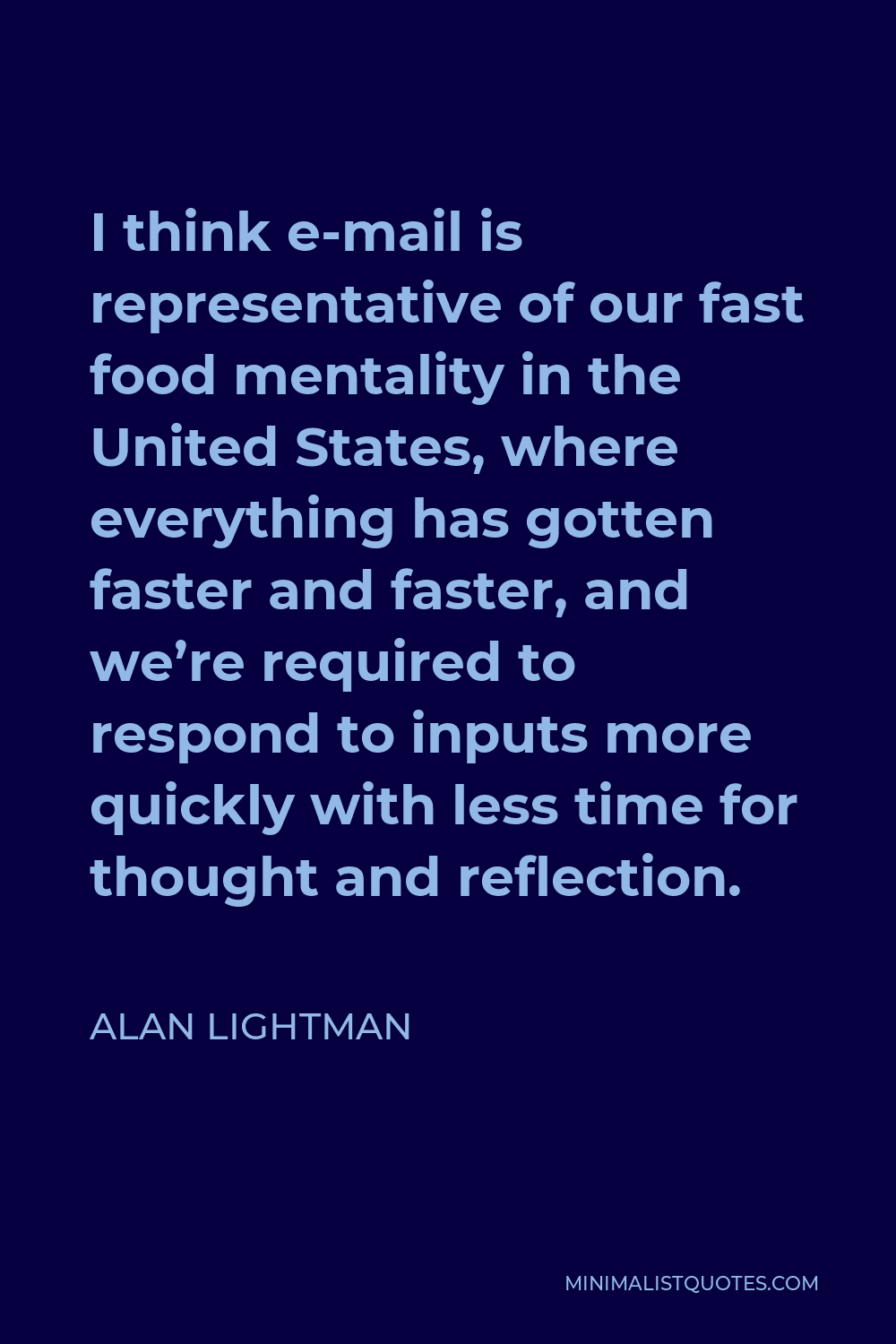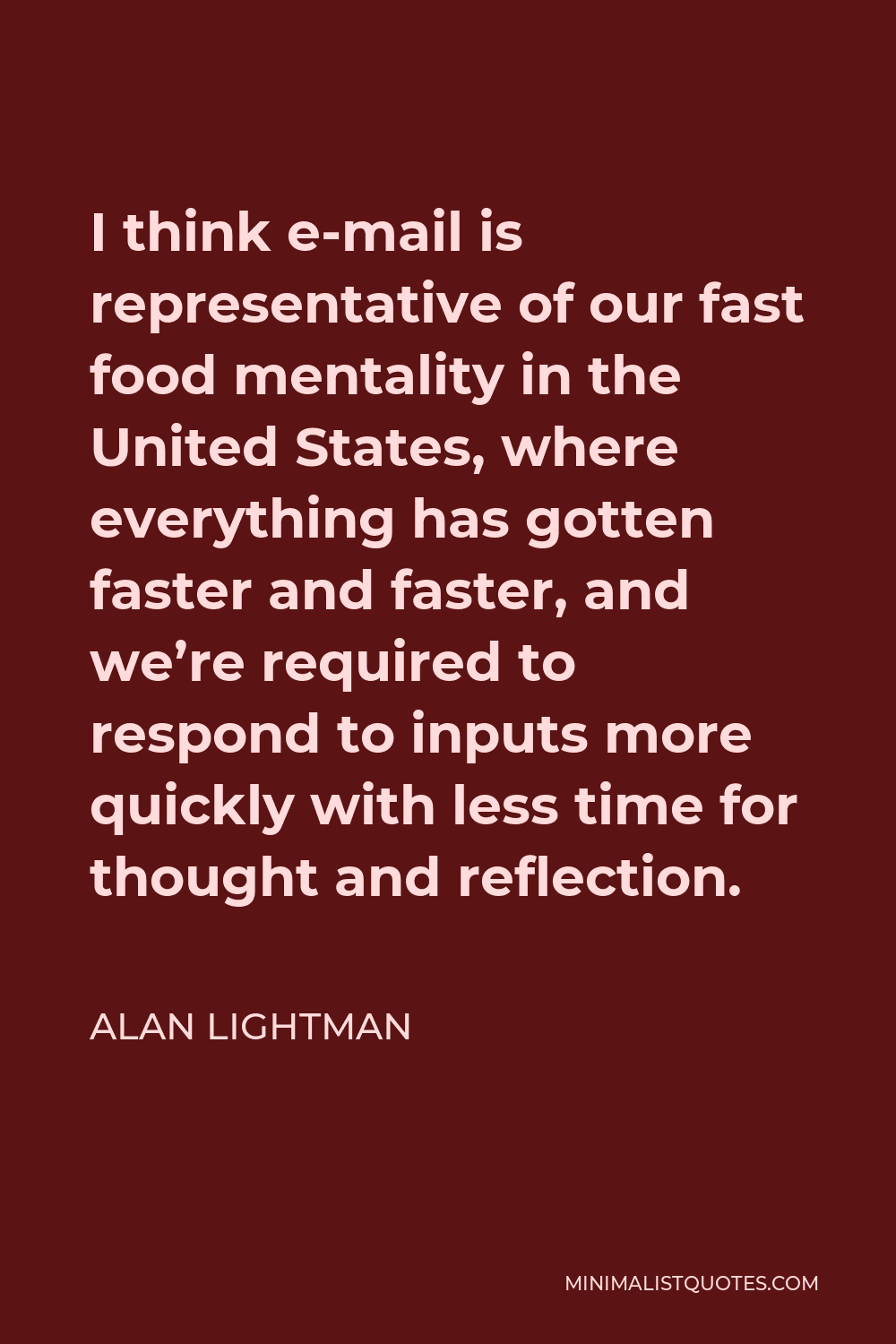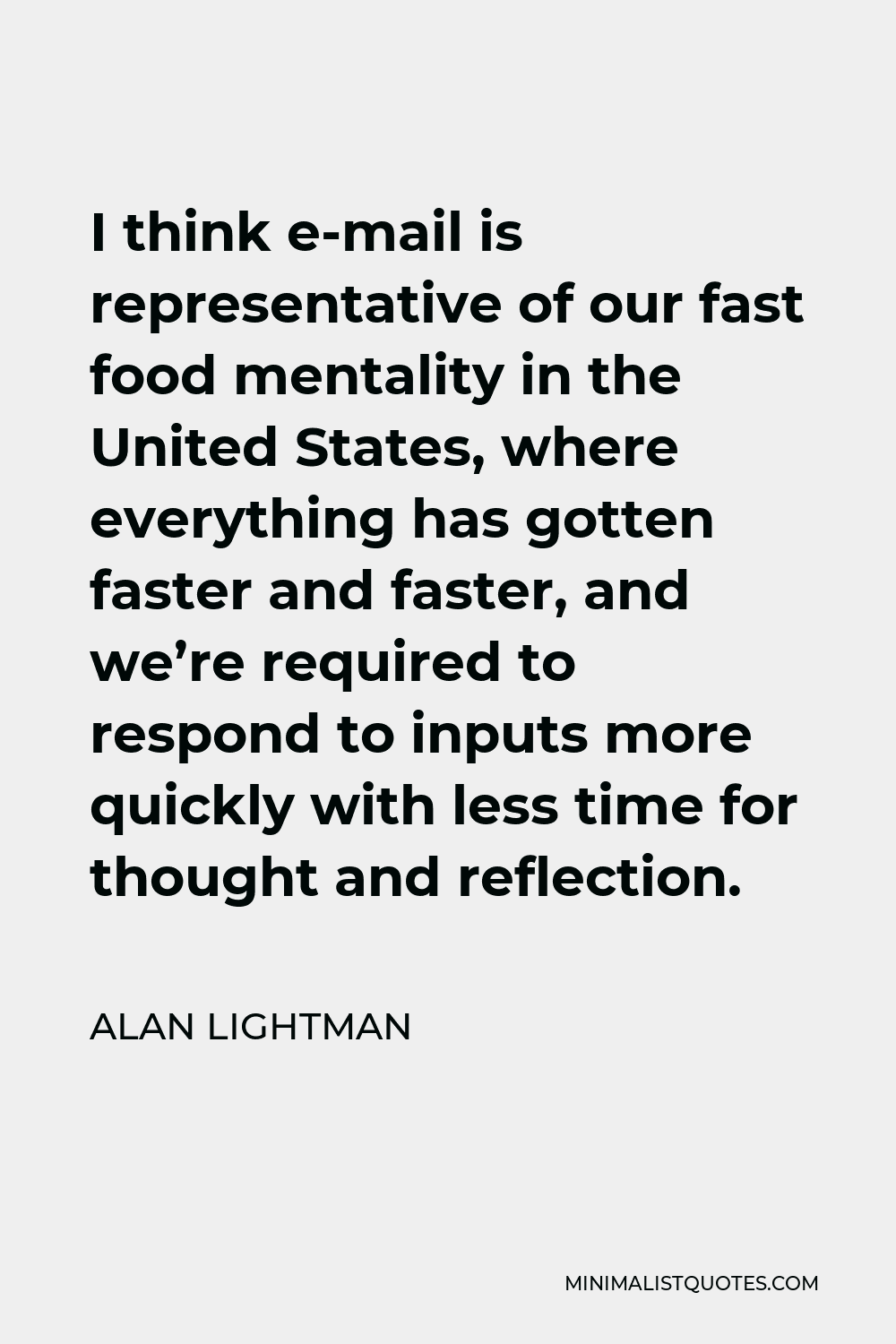Who would fare better in this world of fitful time? Those who have seen the future and live only one life? Or those who have not seen the future and wait to live life? Or those who deny the future and live two lives?
ALAN LIGHTMANI think e-mail is representative of our fast food mentality in the United States, where everything has gotten faster and faster, and we’re required to respond to inputs more quickly with less time for thought and reflection.
More Alan Lightman Quotes
-





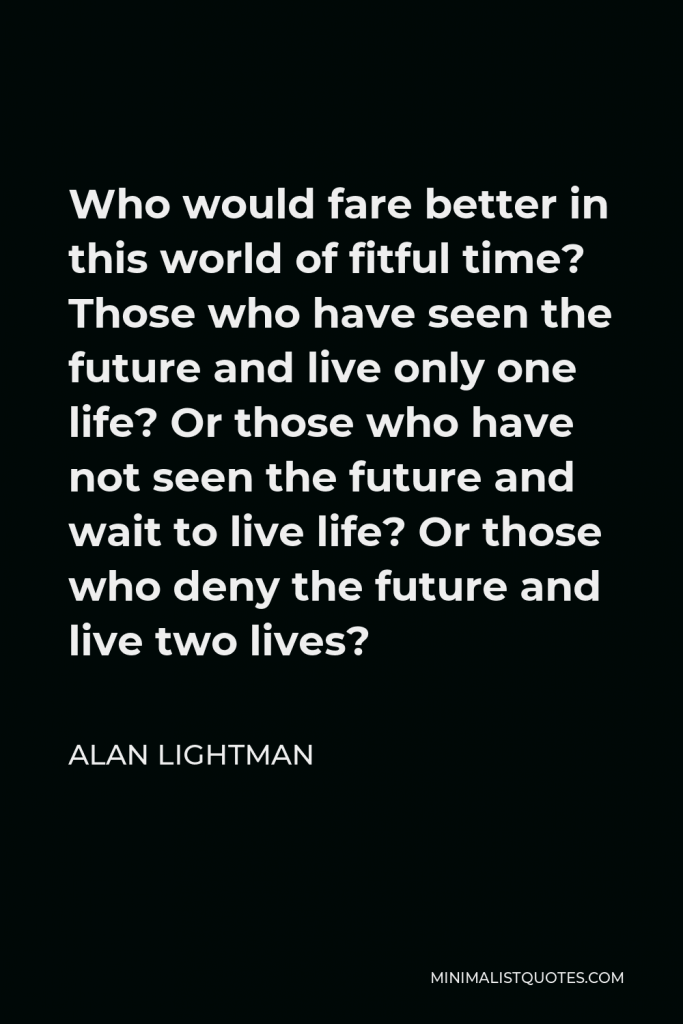

-





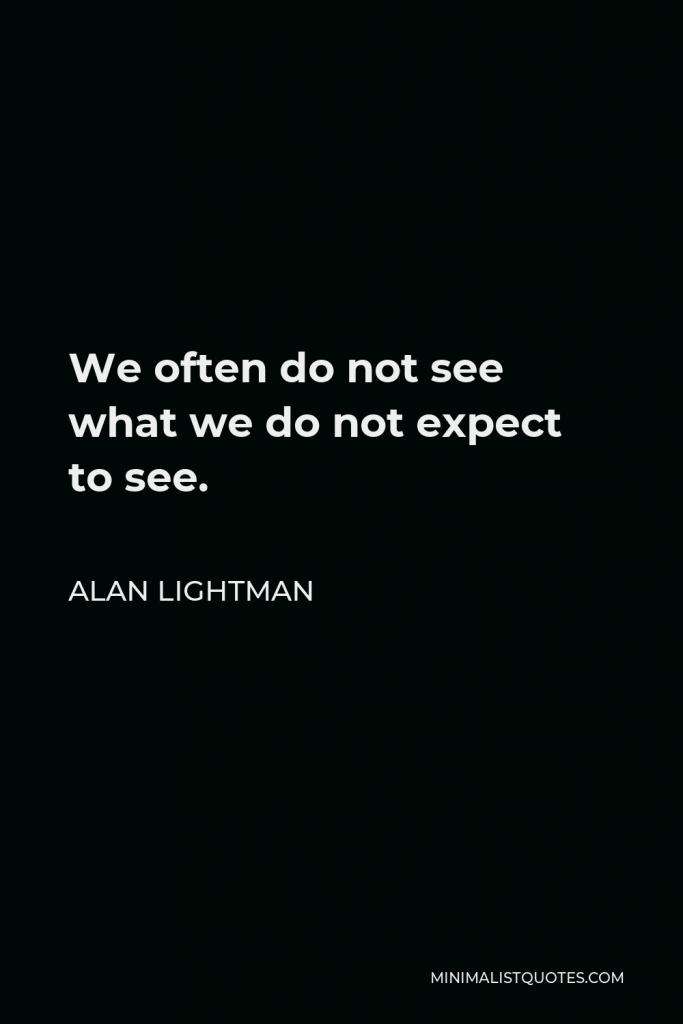

We often do not see what we do not expect to see.
ALAN LIGHTMAN -





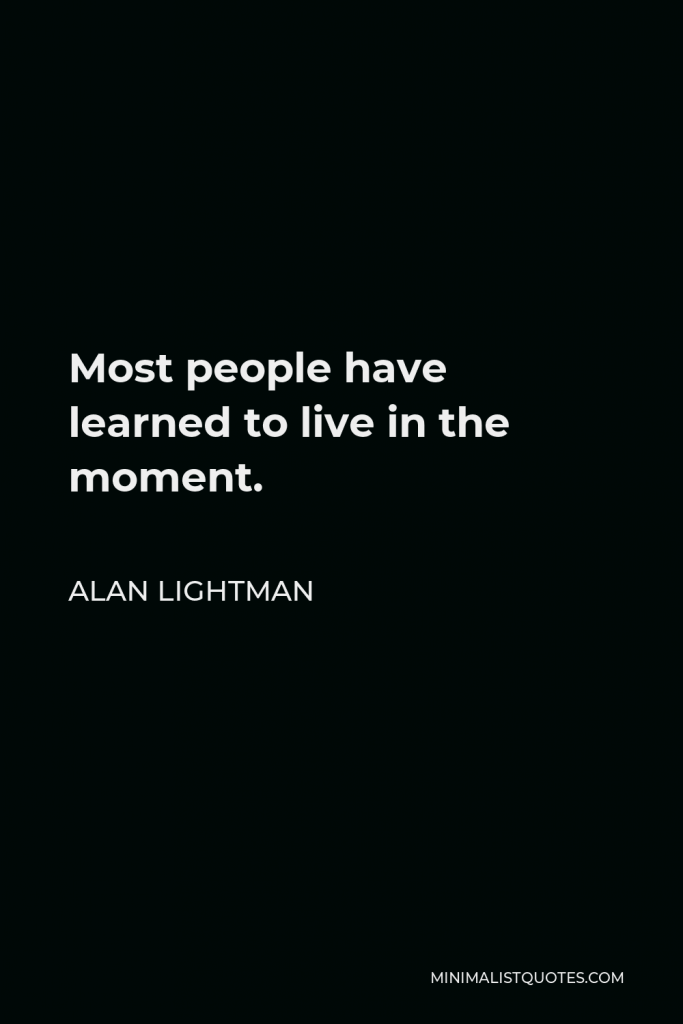

Most people have learned to live in the moment.
ALAN LIGHTMAN -





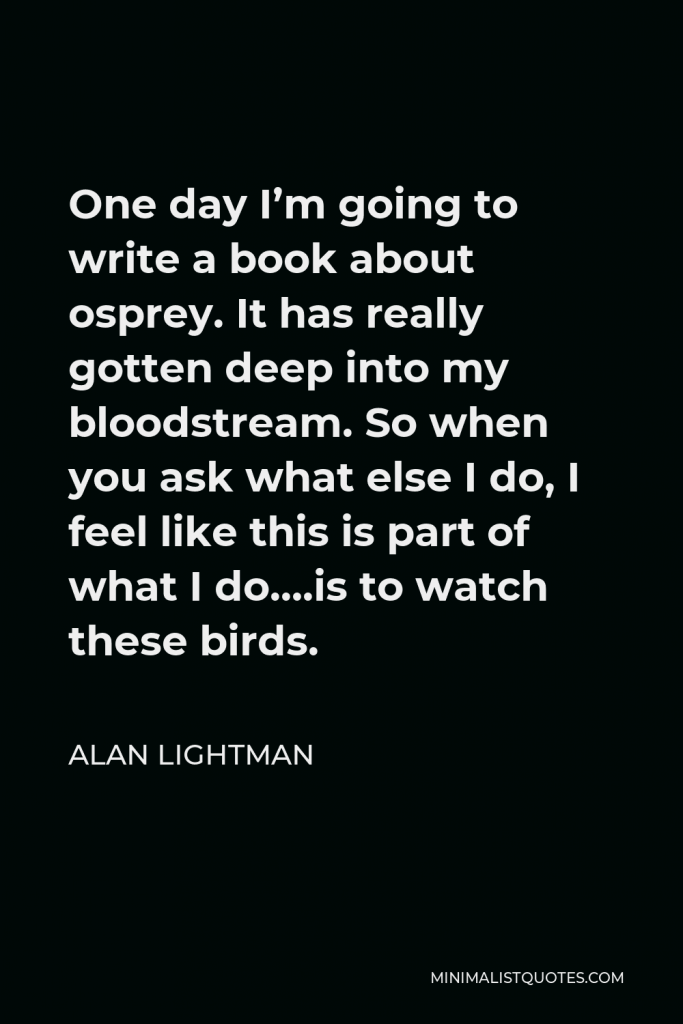

One day I’m going to write a book about osprey. It has really gotten deep into my bloodstream. So when you ask what else I do, I feel like this is part of what I do….is to watch these birds.
ALAN LIGHTMAN -





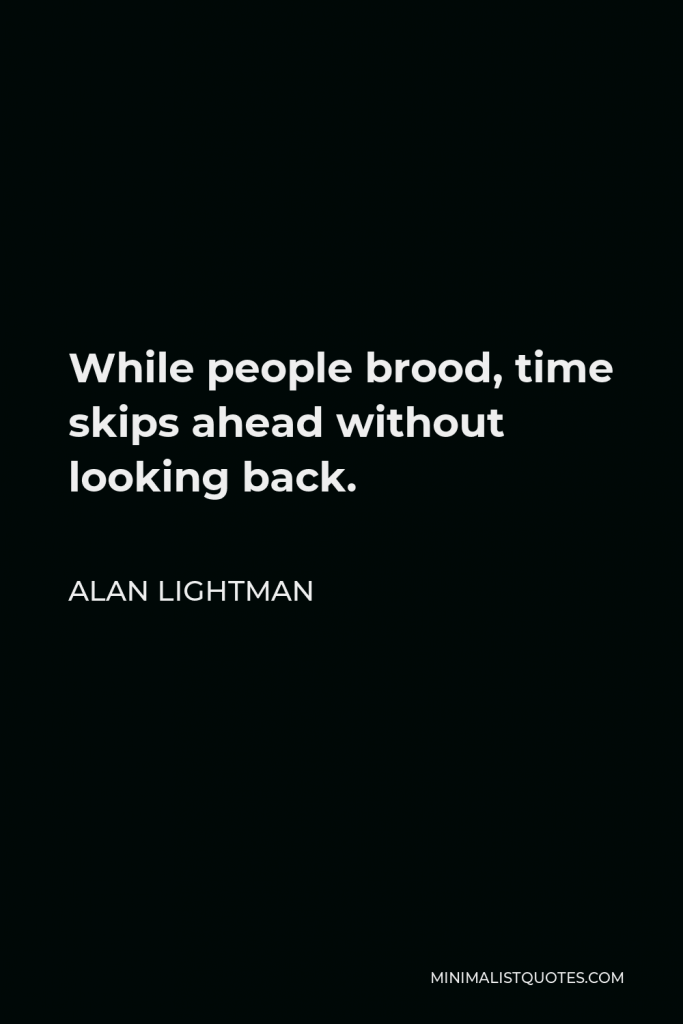

While people brood, time skips ahead without looking back.
ALAN LIGHTMAN -





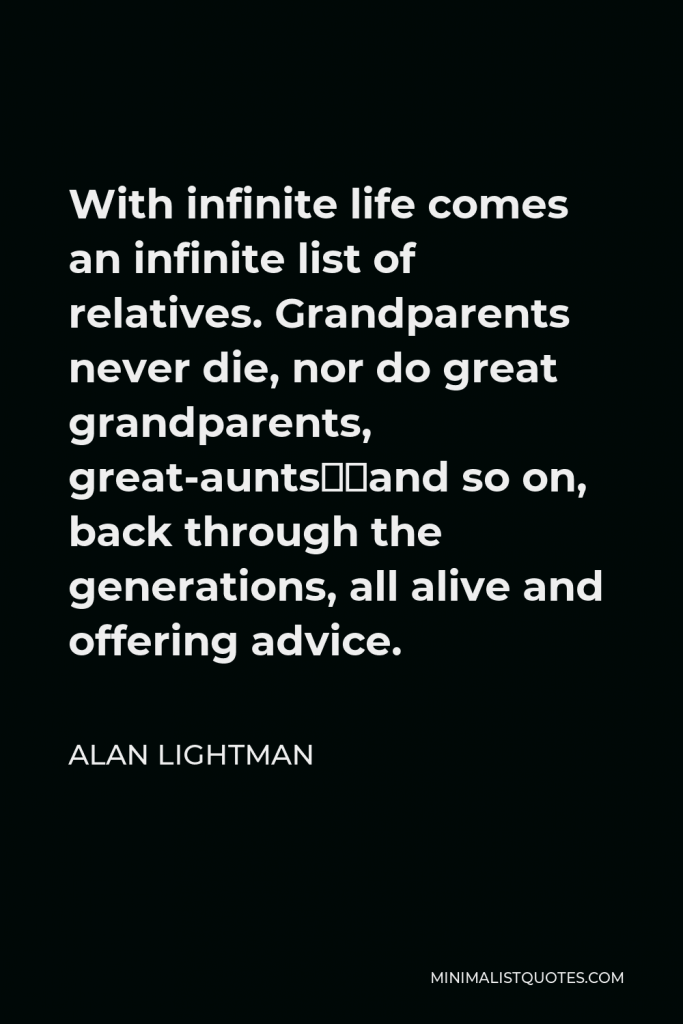

With infinite life comes an infinite list of relatives. Grandparents never die, nor do great grandparents, great-aunts…and so on, back through the generations, all alive and offering advice.
ALAN LIGHTMAN -





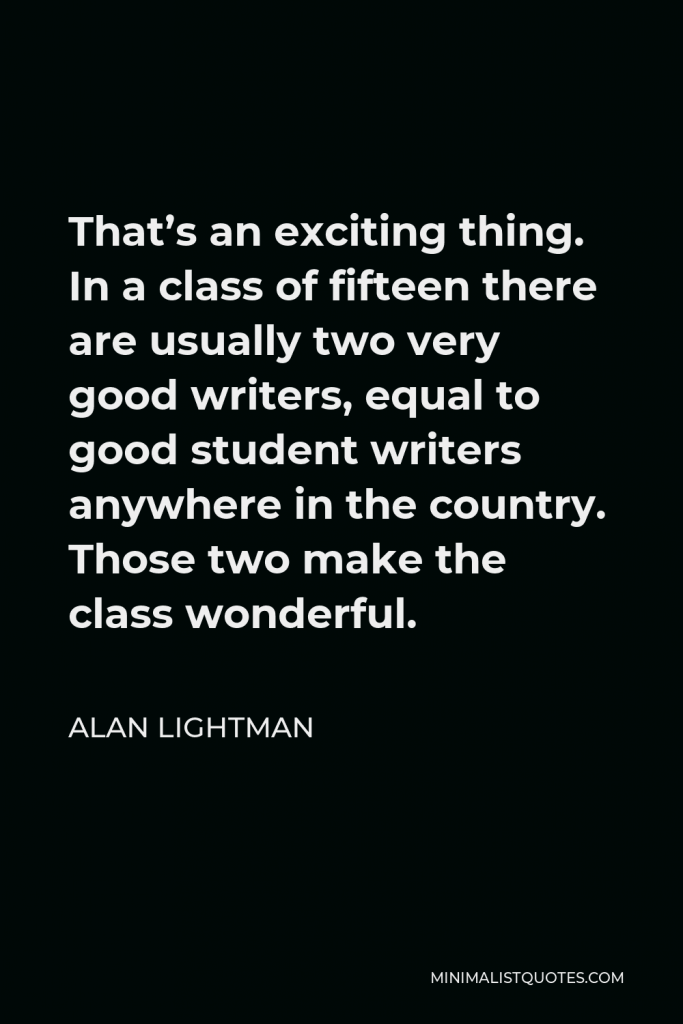

That’s an exciting thing. In a class of fifteen there are usually two very good writers, equal to good student writers anywhere in the country. Those two make the class wonderful.
ALAN LIGHTMAN -





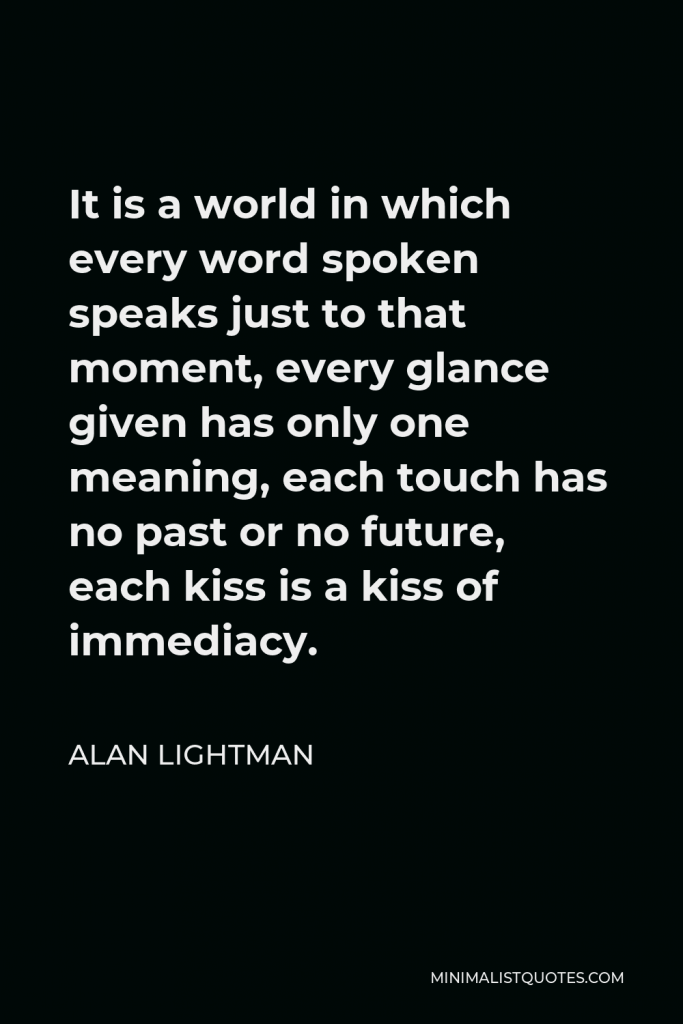

It is a world in which every word spoken speaks just to that moment, every glance given has only one meaning, each touch has no past or no future, each kiss is a kiss of immediacy.
ALAN LIGHTMAN -





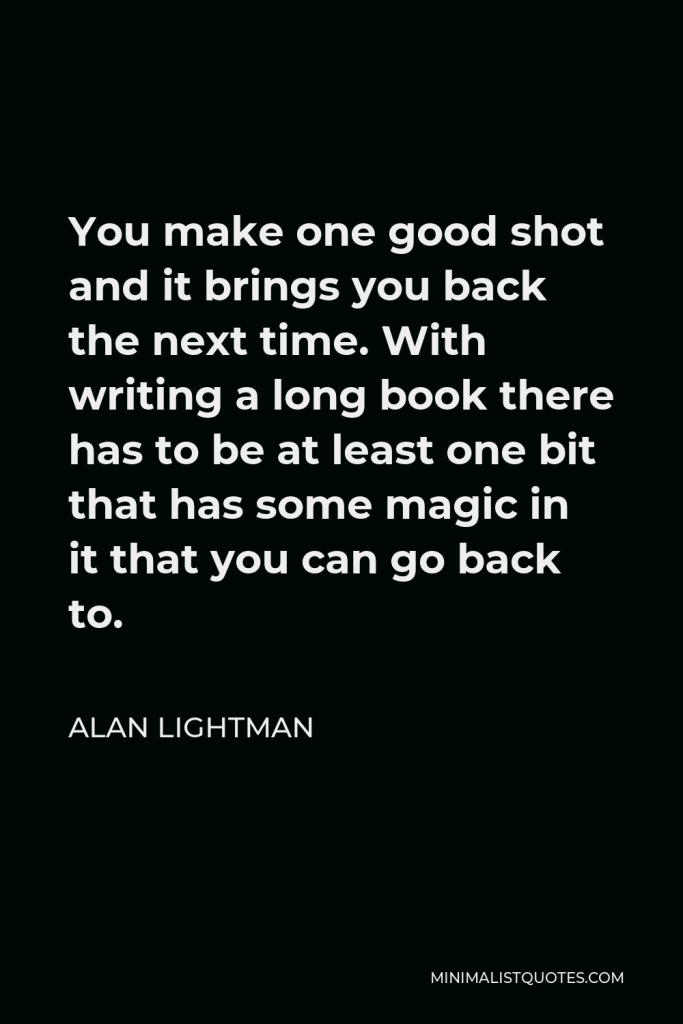

You make one good shot and it brings you back the next time. With writing a long book there has to be at least one bit that has some magic in it that you can go back to.
ALAN LIGHTMAN -





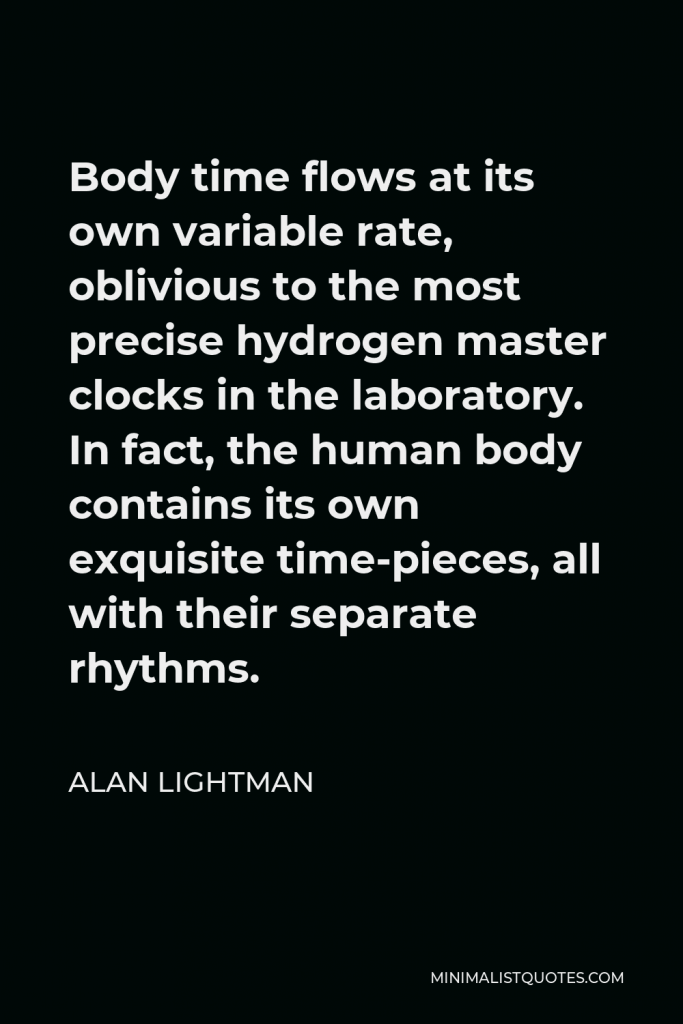

Body time flows at its own variable rate, oblivious to the most precise hydrogen master clocks in the laboratory. In fact, the human body contains its own exquisite time-pieces, all with their separate rhythms.
ALAN LIGHTMAN -





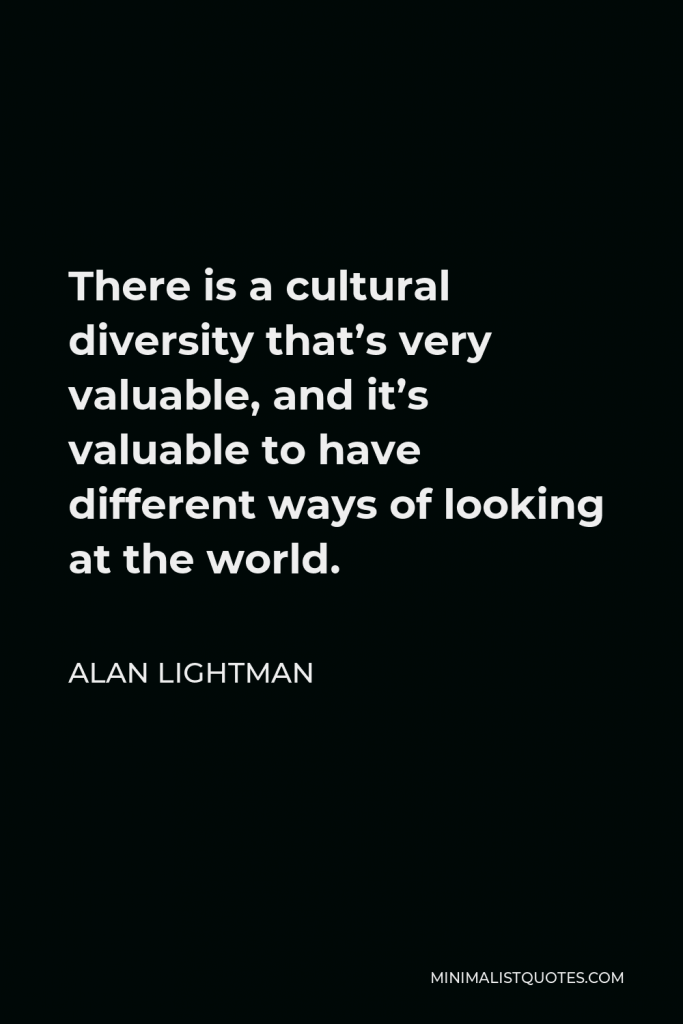

There is a cultural diversity that’s very valuable, and it’s valuable to have different ways of looking at the world.
ALAN LIGHTMAN -





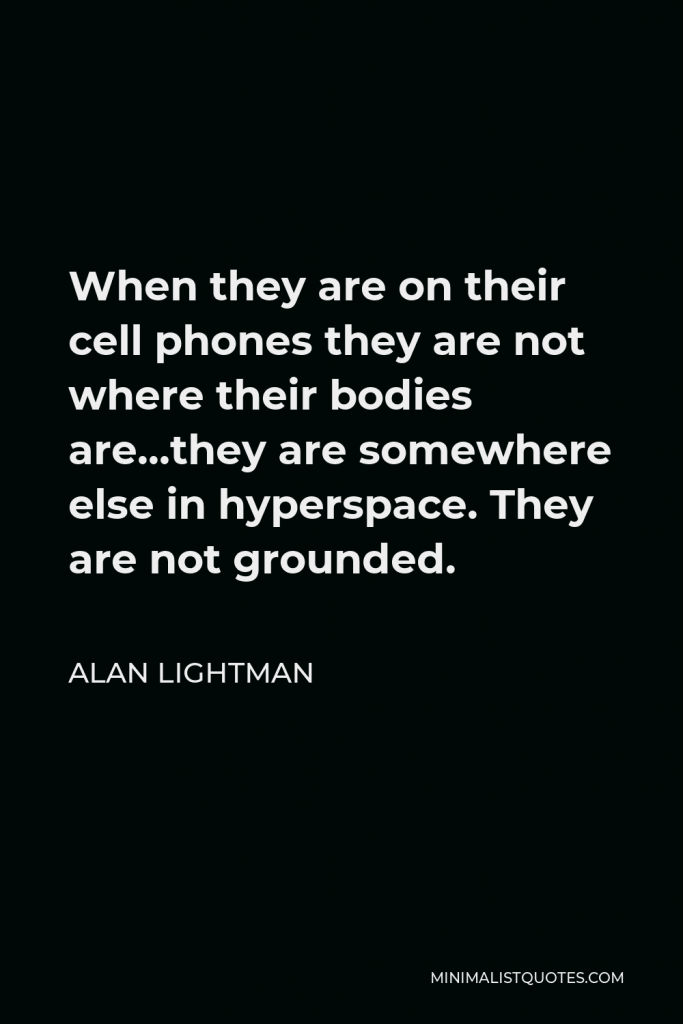

When they are on their cell phones they are not where their bodies are…they are somewhere else in hyperspace. They are not grounded.
ALAN LIGHTMAN -





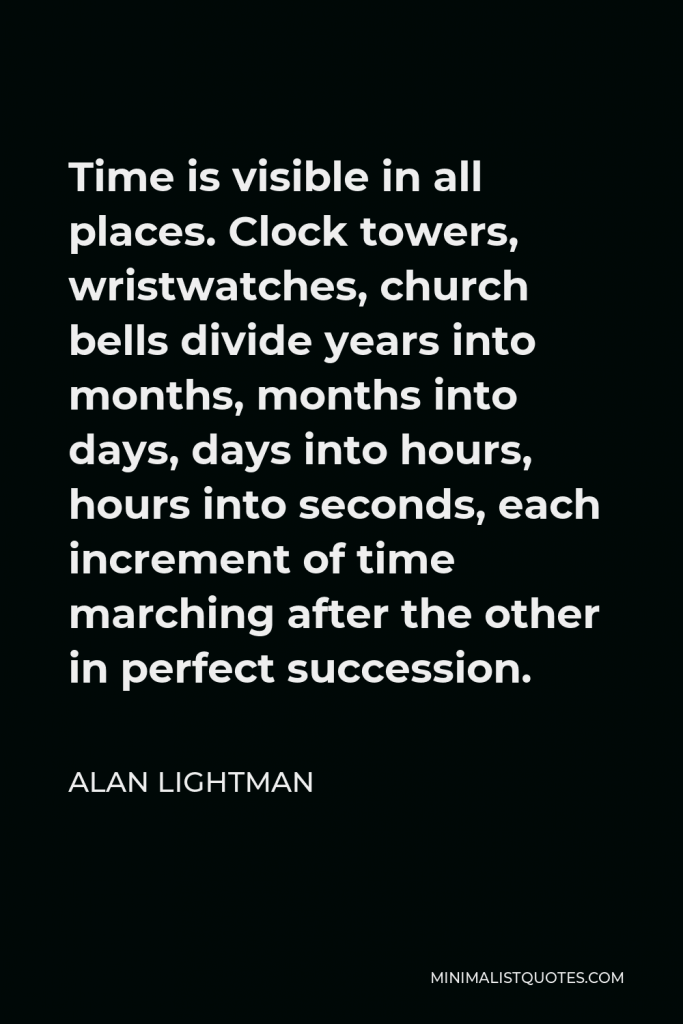

Time is visible in all places. Clock towers, wristwatches, church bells divide years into months, months into days, days into hours, hours into seconds, each increment of time marching after the other in perfect succession.
ALAN LIGHTMAN -





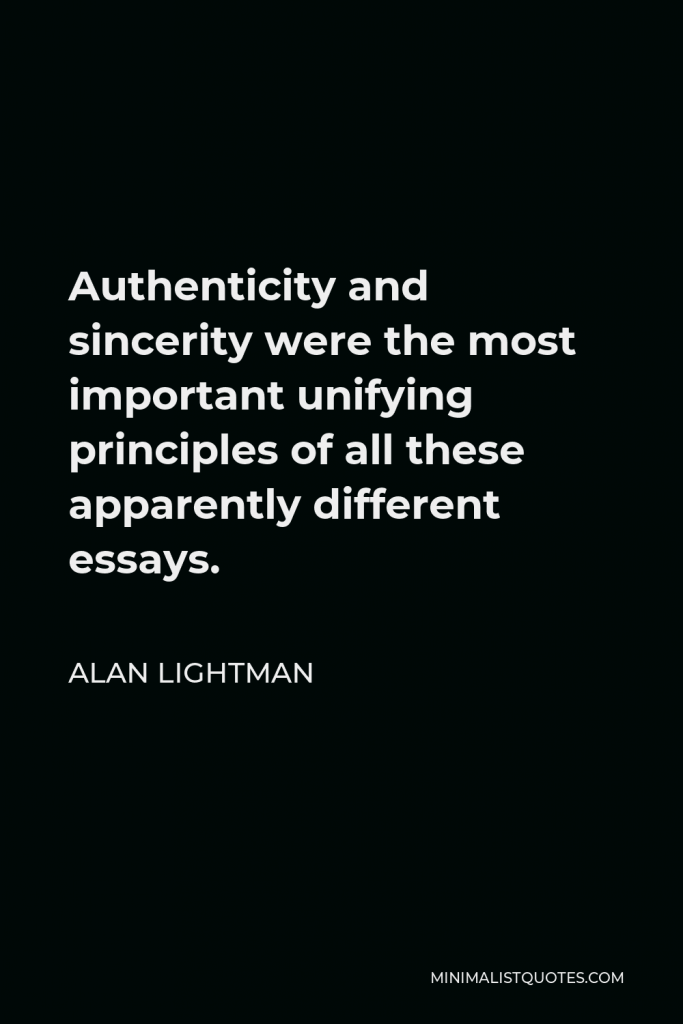

Authenticity and sincerity were the most important unifying principles of all these apparently different essays.
ALAN LIGHTMAN -





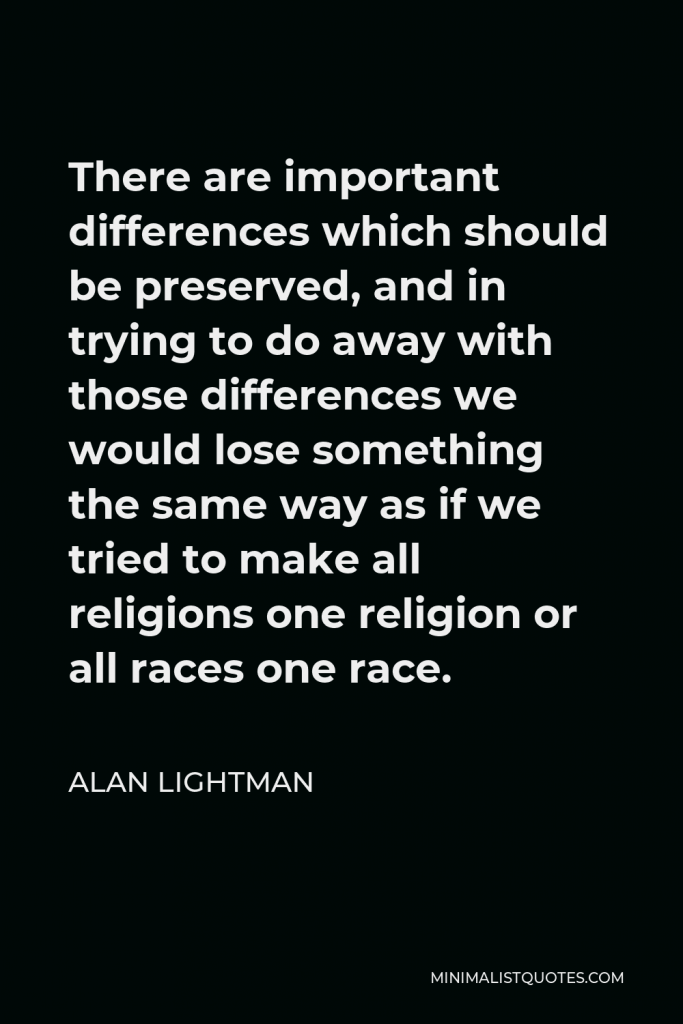

There are important differences which should be preserved, and in trying to do away with those differences we would lose something the same way as if we tried to make all religions one religion or all races one race.
ALAN LIGHTMAN -





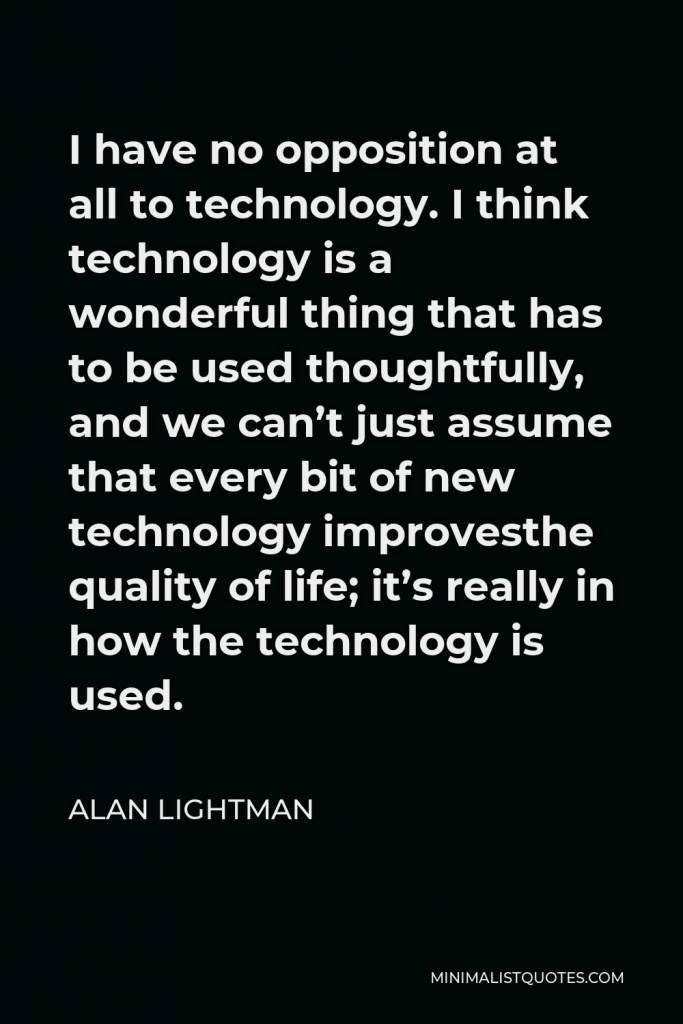

I have no opposition at all to technology. I think technology is a wonderful thing that has to be used thoughtfully, and we can’t just assume that every bit of new technology improvesthe quality of life; it’s really in how the technology is used.
ALAN LIGHTMAN


